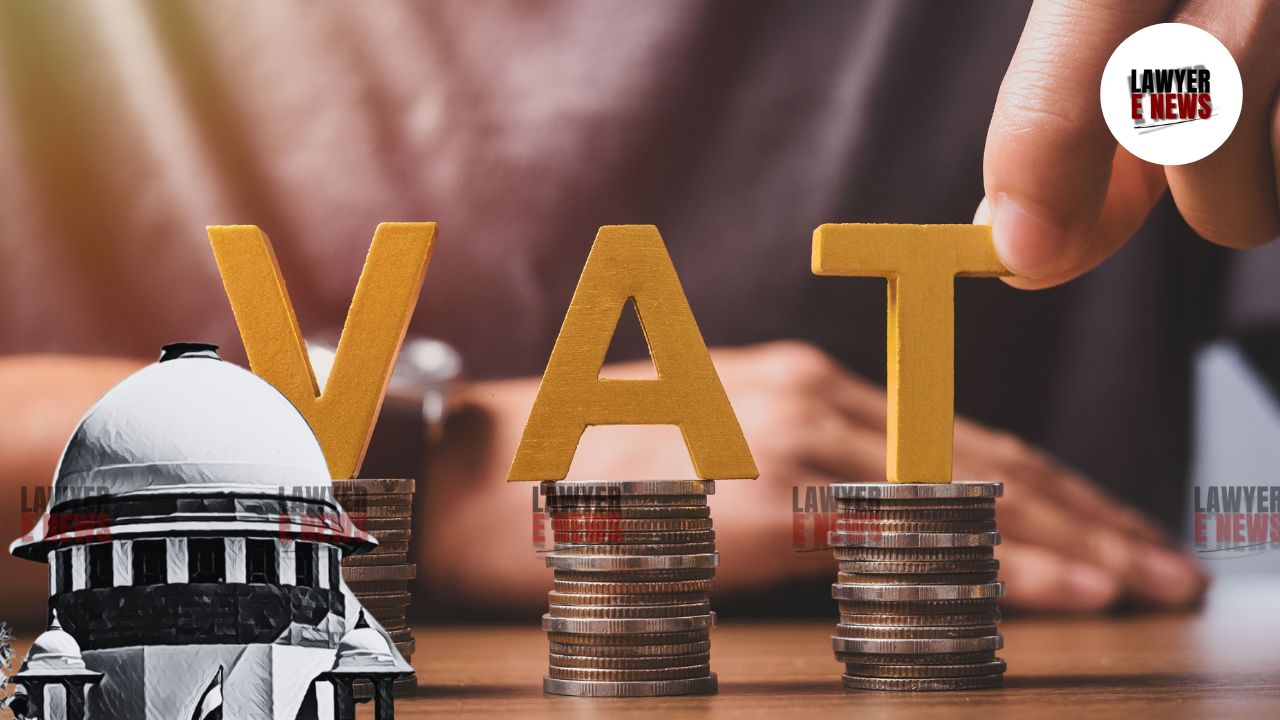-
by Admin
16 February 2026 10:43 AM



Tax Credit Once Earned Cannot Be Retroactively Reduced - Supreme Court declared Rule 21(8) of the Punjab Value Added Tax (VAT) Rules, 2005, which sought to limit input tax credit (ITC) on existing stock due to a subsequent reduction in tax rates, as invalid for the period between January 25, 2014, and April 1, 2014. The Court ruled that the Punjab government lacked statutory authority to introduce such a restriction before the amendment to Section 13(1) of the Punjab VAT Act took effect on April 1, 2014.
Justice Ujjal Bhuyan, writing for the Bench, observed: "A vested right accrued to the dealer when they paid tax on raw materials at the prevailing rate. Rule 21(8) unlawfully took away this right before the law was amended. Delegated legislation cannot override the parent statute."
The dispute arose when the Punjab government reduced the VAT rate on iron and steel goods from 4.5% to 2.5%, effective February 1, 2014. Despite this, Rule 21(8) of the Punjab VAT Rules, introduced on January 25, 2014, sought to limit ITC on pre-existing stock to the reduced tax rate, effectively reducing tax credits already earned by manufacturers and traders.
Multiple manufacturers and trade bodies, including Trishala Alloys Pvt. Ltd., Prime Steel Processors, JREW Engineering Ltd., LSR Forge Pvt. Ltd., and Jalandhar Iron & Steel Merchants Association, challenged the Punjab government's move. The Punjab & Haryana High Court struck down Rule 21(8), prompting the State of Punjab to appeal before the Supreme Court.
The Supreme Court examined the core question: "Could the Punjab government introduce Rule 21(8) to retrospectively reduce ITC on existing stock when there was no enabling provision in the Punjab VAT Act before April 1, 2014?"
Answering in the negative, the Court ruled that before April 1, 2014, there was no statutory sanction to reduce already earned ITC. The amendment to Section 13(1) of the Punjab VAT Act, which introduced the requirement that ITC be available only when goods are "sold" or "used in manufacture," came into effect only from April 1, 2014.
Justice Bhuyan, rejecting the state’s argument, stated: "On the date of introduction of Rule 21(8), the State did not possess any power, emanating from the Act, to confine the availing of input tax credit to the reduced rate of tax on stock in trade. The amendment in the first proviso to Section 13(1) was not retrospective but applied only to transactions after April 1, 2014."
The Supreme Court made three crucial observations in striking down the Punjab government’s attempt to retroactively limit ITC:
The Punjab VAT Rules are delegated legislation and cannot override or precede the parent statute. The Court noted that Rule 21(8) was introduced on January 25, 2014, whereas the enabling statutory provision in Section 13(1) of the Punjab VAT Act was amended only on April 1, 2014.
Emphasizing this legal flaw, the Court observed: "The State of Punjab was empowered to notify a rule linking the availing of input tax credit to the date of sale or use only from April 1, 2014. Rule 21(8), which echoes this amendment, came into effect on January 25, 2014, when there was no statutory authority enabling such a restriction."
The Court relied on its earlier rulings in Eicher Motors Ltd. v. Union of India (1999) and Jayam & Co. v. Assistant Commissioner (2016), reaffirming the principle that ITC already earned by a dealer cannot be retrospectively diminished.
"A right accrued to the dealer when tax was paid on raw materials at the time of purchase. Any attempt to reduce ITC after the fact, without legislative authority, violates fundamental tax principles. Rule 21(8) unlawfully sought to do this before April 1, 2014."
The Court clarified that taxpayers who had paid VAT at a higher rate before February 1, 2014, were entitled to claim full ITC at that rate. Any rule that retroactively limited ITC would unfairly burden businesses.
The Supreme Court recognized that limiting ITC retrospectively would lead to financial losses for businesses, disrupt tax neutrality, and create uncertainty in tax administration.
Noting the adverse economic consequences, the Court observed: "The taxable person who purchased raw materials at a higher rate of tax and kept them in stock would suffer an unjustified loss if their entitlement to ITC was diminished due to a subsequent tax rate reduction. The law does not permit such unfair deprivation of rights."
The Supreme Court’s ruling is a landmark judgment in tax law, reaffirming that statutory authority is necessary before imposing financial liabilities or limiting tax credits. By holding that Rule 21(8) was invalid before April 1, 2014, the Court has ensured taxpayer rights are protected from arbitrary reductions in ITC.
As Justice Bhuyan summarized: "The benefit of input tax credit is traceable to the statute. If it is to be reduced, which will have adverse civil consequences, it must have the requisite statutory sanction. That sanction came only on April 1, 2014. Therefore, the High Court was justified in holding that Rule 21(8) was inapplicable before that date."
Date of Decision: February 17, 2025
